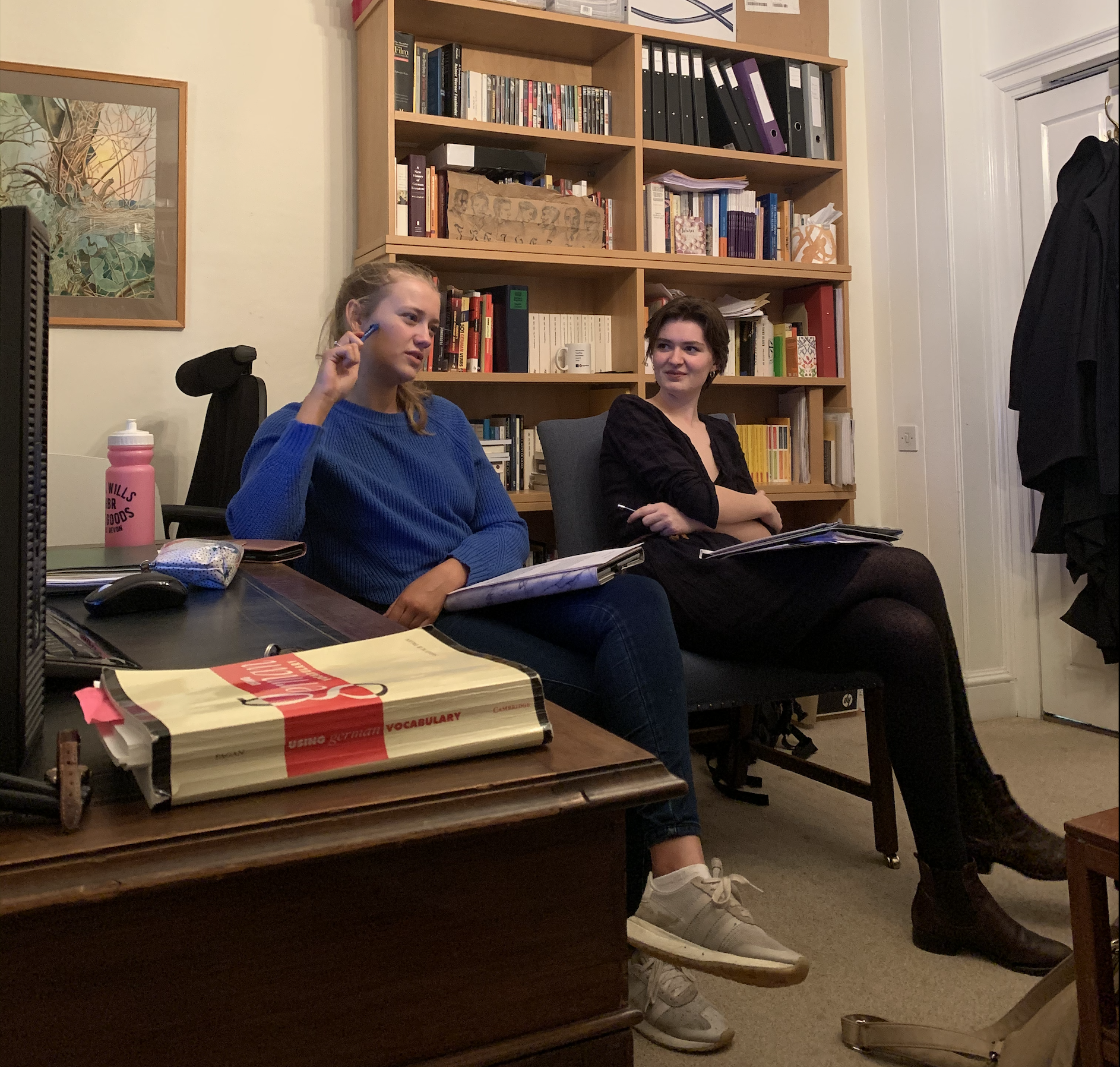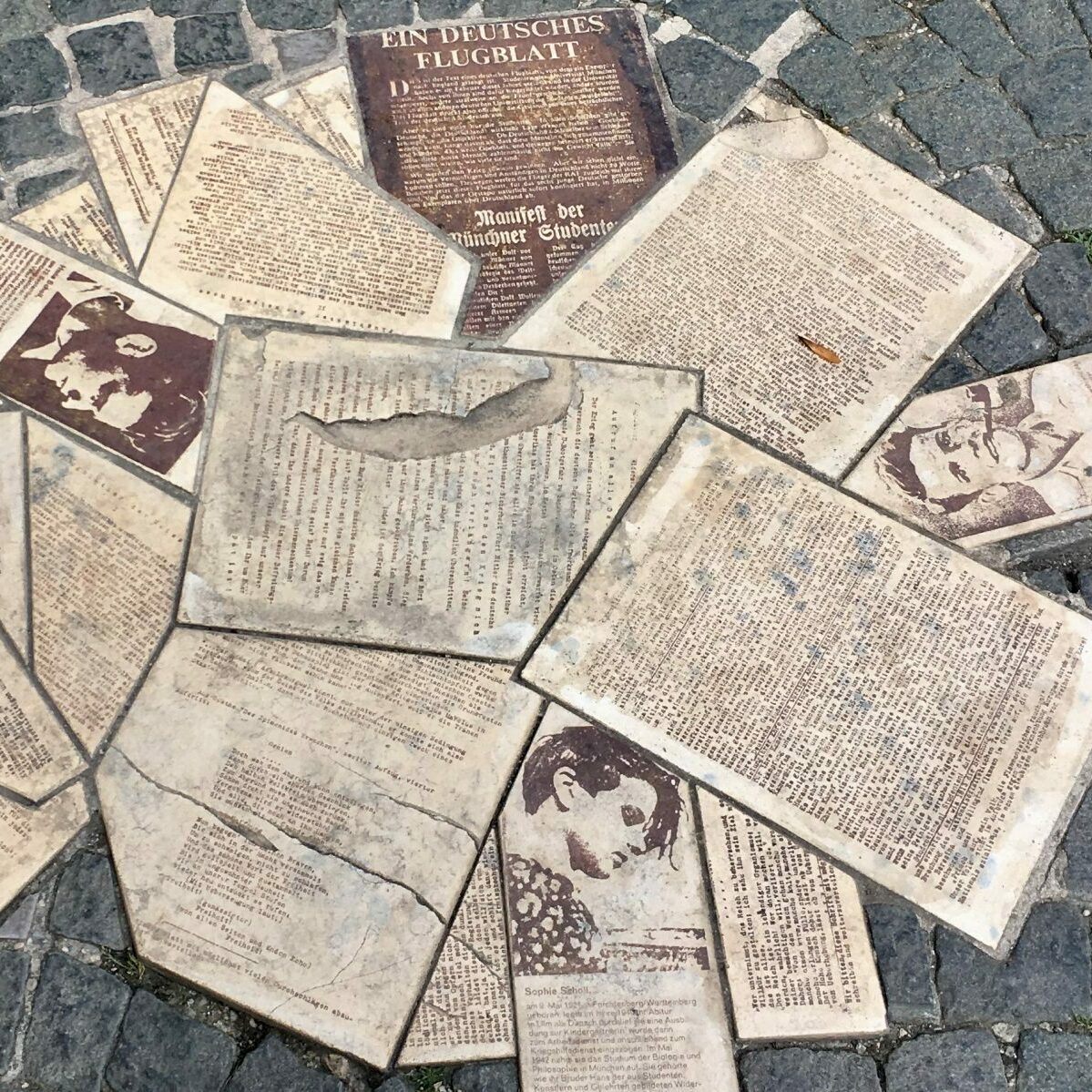One of this year’s White Rose Project translators, Lydia Ludlow, comments on the experience of translating Sophie Scholl’s letters. Lydia is an undergraduate student at the University of Oxford.
I was excited about taking part in the White Rose Project, though I didn’t really know what to expect. My knowledge of the White Rose was limited to a foggy memory of something mentioned in a long-ago GCSE history class; I certainly hadn’t read anything they’d written.
We began by learning about Sophie’s biography and I think everyone was quickly struck by what an impressive figure Sophie was, even long before her execution. Like the other White Rose members Sophie was astonishingly well-read, and her reading material (Aquinas, John Henry Newman) shows her keenness to engage with serious questions of theology and morality at a time where the distractions of her own life, and the oppressiveness of the political climate, might have made it easy to shy away.

Sophie’s thoughtfulness comes across strongly in her writing. She demonstrates a clear-sightedness about the nature of the Nazi regime, describing the political situation as ‘confused and evil’, but she also writes sensitively about how it affects her: the pain of dedicating energy to a cause she doesn’t believe in, and how she feels oppressed by an uncertainty about the future, which prevents her from making any plans. I think it is easy for us to look back on the White Rose, or on Nazism, with the end always in mind, so the uncertainty and fear that runs through Sophie’s writing is particularly forceful. It’s another reminder of the realness of the texts, which is in contrast to the translation we do in classes, which is more often fictional.
Fear doesn’t dominate Sophie’s writing, however. Her letters also demonstrate her earnest hope and how she draws inspiration and motivation to do good from her religious faith. As well as religious hope, there is powerful humanity in her letters, especially in the affectionate and playful way she addresses her fiancé Fritz.
There is something very compelling about engaging with a text by someone so close in age to yourself: Sophie Scholl was only a little older than me when she died, and we’re also both female students. These similarities made reading her even more powerful; some of it felt familiar, for instance her reflection on the difference between being in her parents’ home and living alone. But these small aspects of relatability also go to highlight the enormous differences in our situations. Almost every one of Sophie’s thoughts and actions are touched by the regime she lives under: this was a stark reminder of how fortunate I am, and how brave she was.
I leave the project feeling rather awe-struck by the figure of Sophie Scholl who comes across as not only brave, but eloquent, thoughtful, and formidably intelligent.



